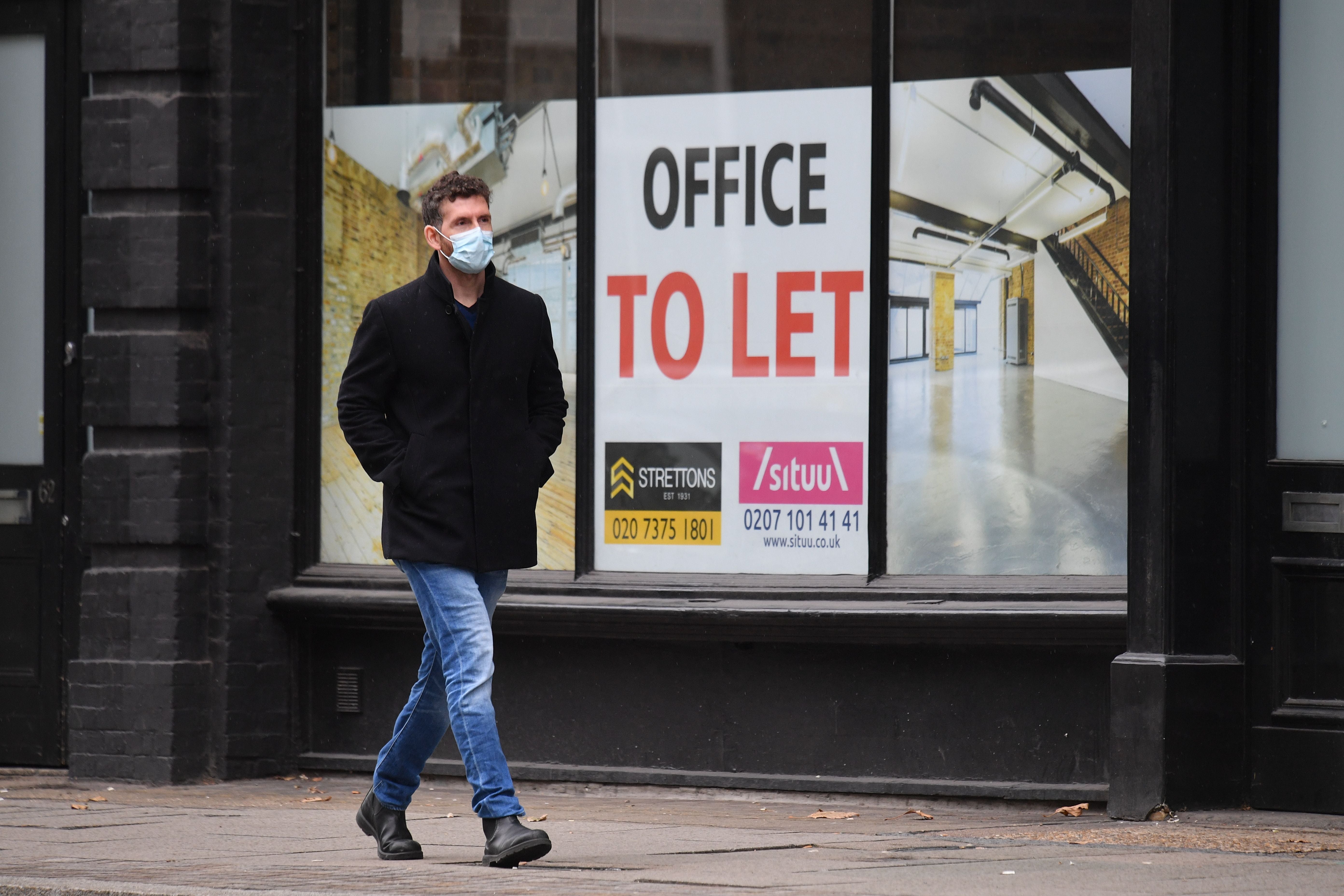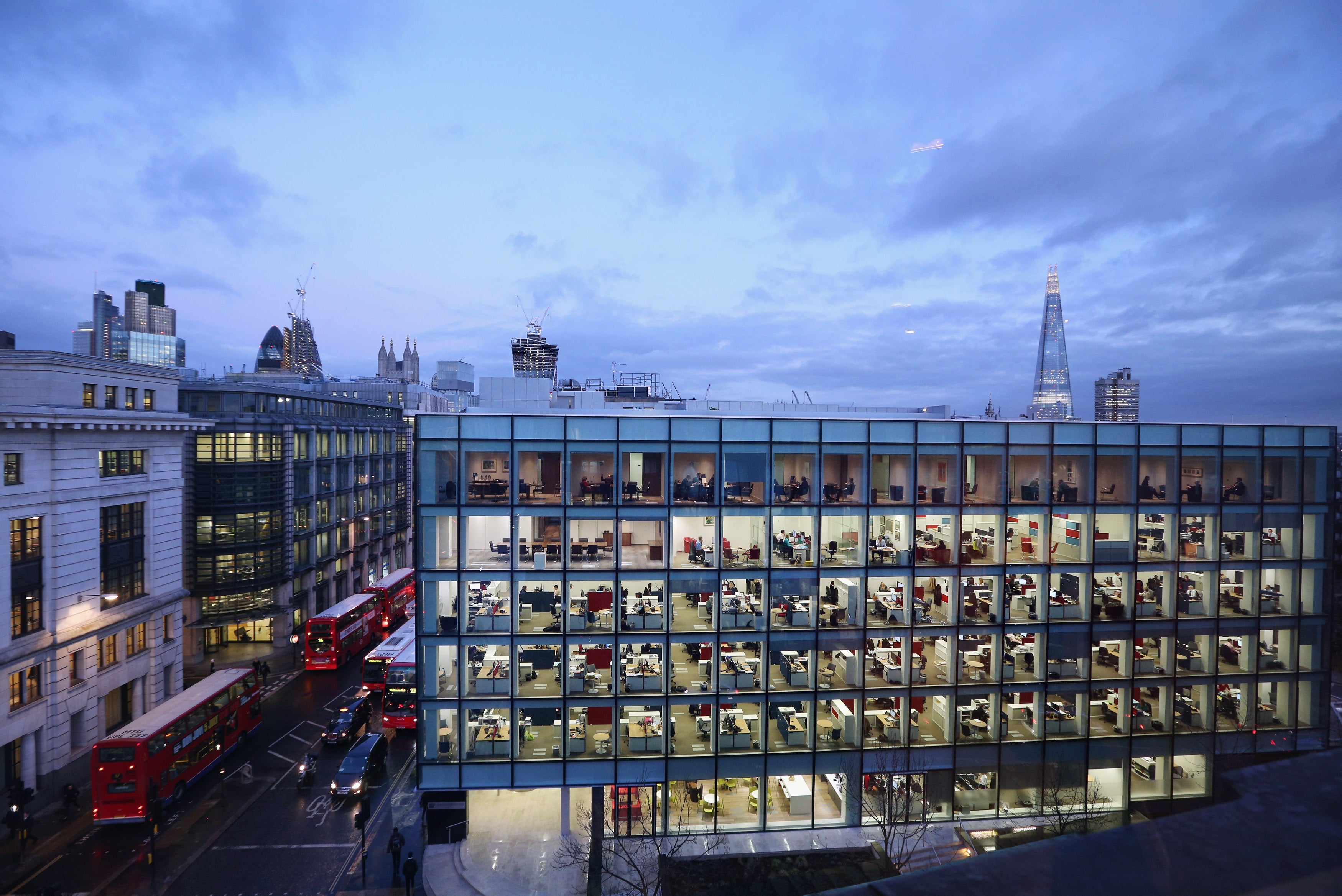The future of homeworking: the pleasures and the pitfalls
The experience of remote working could become an entirely convincing substitute for the physical office, something completely different from using a laptop on the kitchen table, says Steven Cutts


For many of us today, normality seems so far away it’s hard to remember exactly how it felt. But if you speak to an office-based professional, there are some anecdotes that they all repeat. Most of the time, you can see the hierarchy at play. The boss sits at the front of the office and it’s impossible to get to the exit without him seeing you. If he decides to stay after 5pm then his staff are left with a dilemma. Maybe he’s watching them out of the corner of his eye. The most ambitious among them stay with their computers to the bitter end, pretending to be doing something useful. In the weird and wonderful world of office politics, this is how people get on.
Then comes the lockdown. Out of the office, you can do pretty much anything you like so long as you complete your project on time and to a reasonable standard. Of course, there were people working like this long before Covid and long before they invented the internet, but lockdown has opened people’s eyes to the possibilities of remote working in a way that they couldn’t previously see.
Read More:
How to deal with a bad boss while working from home
It’s going to be harder to judge people in the future compared to the past, although it’s not inconceivable that it may become more objective. If you’re not even there, it’s hard to imagine how you can be accused of trying to impress anybody with a refined dress sense, speech pattern, ethnicity or prowess on the golf course.
If I invented a car engine that produced 10 per cent less noise and 10 per cent less pollution and if that engine was put into every car I could reasonably expect to win a design award. If I owned shares in the company, I’d be rich. But there are other ways to achieve this objective without inventing anything. If your average city-based office worker decided to work from home just one day every two weeks then the reduction in noise, smog and fuel consumption would be much the same. What’s more, road traffic congestion would fall too.
The lockdown has opened our minds to the potential of home or remote working but it’s revealed a few pitfalls too. A friend – Andrew – has been leading a project on a wind farm in East Anglia, largely working from a spare bedroom in Kent. “The computer’s always there,” I’ve heard him moan. “You keep walking around the house trying to get away from it and it pulls you back.”
The traditional divisions between work and home living have disappeared. For some, the background noise associated with home life can be distracting too. Many parents with young children struggled to reconcile the idea of a home office with the clamour for attention from their own children. For all the joys of the commute, the fresh air we receive on the way to the workplace has been replaced by centrally heated, overly familiar home life and some people prefer things how they were.

In Manhattan, a high-powered office-worker friend in Manhattan has been banished to her own apartment in Brooklyn for most of the past 12 months. She loves it. She describes herself as being 200 per cent more productive than she was in the old office and working with great effect by laptop. The company is thinking of abandoning its current location and moving to a more down-market facility about half the size of the old place. Their six-figure salaried all-graduate workforce will only meet in the flesh about once or twice a week, just to maintain morale and check everyone knows what’s going on. Some people won’t have her discipline, others will.
How will we pay people in this country, if and when they are not required to turn up in the workplace?
If your boss is paying £20,000 in rent on your office it’s tempting to suggest that you should volunteer to work from home for an extra £10,000 a year on your salary. Offer to let him keep the other £10,000. One of the problems here is that if this becomes a real trend on the global stage then all office-based companies will feel compelled to do the same. If companies in the same field suddenly find a way to halve their office rent, heating and electricity bills, how much longer can their rivals wait to do the same?
Another issue is the nature of the tech. Zoom has seen its share price soar in the lockdown but at the end of the day its showing you a picture of your colleagues on a 15-inch screen. Real-time moving holograms of science fiction may be some distance away, but a screen that shows the whole body is already available. The tech industry is now pitching a 100-inch flat TV for the market, some of them curved. They’re expensive but so is prime location office space.
If we get to the stage where entire walls in your home-office can be screened, it’s not inconceivable that people will sit in front of the virtual office they left behind with colleagues that appear full-size and not doll-size in liquid crystal.
Doing the Teams meeting in your boxer shorts has become an unexpected feature of the recent pandemic but if the tech demands a panoramic shot from your hair style to your choice in shoes then the virtual office meeting becomes a different experience again. Beyond a certain point, the experience of remote working could become an entirely convincing substitute for the physical office or the traditional overseas business trip. Something completely different from using a laptop on the kitchen table.

Needless to say, there are people working on this kind of thing as we speak. For many years, a certain type of person likes to get excited at dinner parties about the injustice of the first-class carriage on the British rail network. Shouldn’t we all “be the same class” etc. In less than a decade, the whole of business class in rail and air travel could become a thing of the past. The business model of the travel industry will be devastated.
It has the potential to impact on one of the most sensitive issues in British politics, immigration.
In years gone by the British government imported people from Pakistan and deployed them in Preston to help with the textile trade. Around 900,000 people were working in textiles in 1979. Since then that number has fallen to around 90,000 with most of the deficit having moved offshore. A low-wage, largely female workforce, they seemed to go quietly. However, it is not the case that we aren’t using Asian people to produce our clothing. More clothes are being made in the Indian subcontinent than ever before. They’re just being produced in another country by people working for extremely low wages. From the money side of things, this makes perfect sense. So long as you keep your workers thousands of miles away, you don’t have to worry about local pay and social costs.
Not all nations do this. In the recent past, Saudi Arabia took to paying foreign doctors a salary that was akin to the kind of money they would be making in their home country. Hence a group of doctors might set off on the same ward round in the same hospital for entirely different hourly rates. The American doctor would receive the most, the British and German staff a bit less and the guy from Africa hardly anything at all. Within the Saudi culture, this seemed normal.

How then, will we try to pay people in this country, if and when they are not required to turn up in the work place? A worker in Middlesbrough has much lower overheads than someone doing the same job in Chelsea. For many years now, there has been a continuous drift of talent from the provincial towns and cities with the best and the brightest turning up in the capital on a regular basis. But in the future, things might change. If location becomes irrelevant then the same salary will go much further in a location like Middlesbrough than it will in Hampstead. Will this phenomenon begin to correct the marked imbalances we have seen develop within our society over the past few decades?
Maintaining prosperity in London is about creating a playground where the best and the brightest will want to indulge
But why stop there? Remember that about 750,000 British people own a home in Spain with about half of those being occupied full time. If you can work from home, why would you want live in a dull, overcast place like the north of England. A house overlooking the Med sounds much more attractive. If we start offering people careers in British white-collar jobs that enable them to work from Cape Town just as easily as they could in Brixton, which government will have a claim on their income tax?
Prior to the last banking crash about 25 per cent of all income tax in Britain was coming in from the financial sector workers in London. With hindsight, this was part of the reason that the government found it so difficult to regulate the industry. Politicians were petrified that the bankers might desert them and take their National Insurance, corporate and income tax to another player.
Now things are different. Pretty soon, just about any worker will be able to do exactly this whenever they want to, assuming they can find another country that is willing to have them and let’s face it, with a six-figure salary on the cards, just about anybody is going to have you. At first sight, a move to the West Indies sounds attractive but it’s in a completely different time zone and if you want to communicate with your colleagues in London using Skype, you’re going to end up working odd hours.
In practise, the Caribbean is more likely to lure workers back from the eastern coast of America. The whole point of moving to a place like Jamaica would be to enjoy the culture and climate on offer and if you’re forced to work strange hours, that just isn’t going to be possible.
If such a process were to gather pace it might dramatically downgrade the pressures on the London housing market. There would, however, be a genuine risk that European governments might see an implosion in tax receipts.

Of course, there are other reasons why people prefer one country over another. Health care, education, political stability. Relatively low levels of organised crime and business corruption. Many years ago, there was a huge political backlash when the lottery commission decided to give a generous donation to the Royal Opera House in Covent Garden. This was a mistake. The most sophisticated and highly educated people earn the highest salaries and pay the most income tax.
In private conversation, many international businessmen will tell you that Frankfurt and Zurich are boring. The unending stream of exciting events that happen in London do more than attract tourists, they make the city a desirable place to live for some of the smartest and most influential people on earth. Unlike the government of the former East Germany, we can’t encircle these people with a concrete fence. They are free to come and go and many of them can and do go on a regular basis. Maintaining prosperity in London is about creating a playground where the best and the brightest will want to indulge.
However, even if the big shots need to be in London, their ancillary staff could be somewhere else. There are already parallels to this method. Think about how many of the call centres we use quite obviously aren’t in our hemisphere. Hearing a foreign accent on the telephone can generate resentment in many circles but it has advantages too. You’re using a foreign workforce but you’re using them in a different location. In the future, other service-industry-type tasks could be operated from a great distance.
Read More:
What is working from home doing to your eyes?
Lockdown lifting: How to claim money back when working from home
Working from home has led to people neglecting mental health, study finds
There’s no guarantee that the vogue towards home working would follow the kind of benefits we imagine. It might simply trigger a massive shift in white-collar jobs out of wealthy countries and into their low-cost competitors, repeating the process of de-industrialisation that has already devastated our blue-collar workforce.
Remember that most employers move their jobs overseas simply because it represents an opportunity to drive down wages. In other words, if the average GDP per head of population in Jamaica is $6,000 they can offer $12,000 for a job that might pay $50,000 in New York. It doesn’t really matter that the same job in London might fetch $50,000. From the perspective of the locals, this represents a great deal.
Join our commenting forum
Join thought-provoking conversations, follow other Independent readers and see their replies
Comments